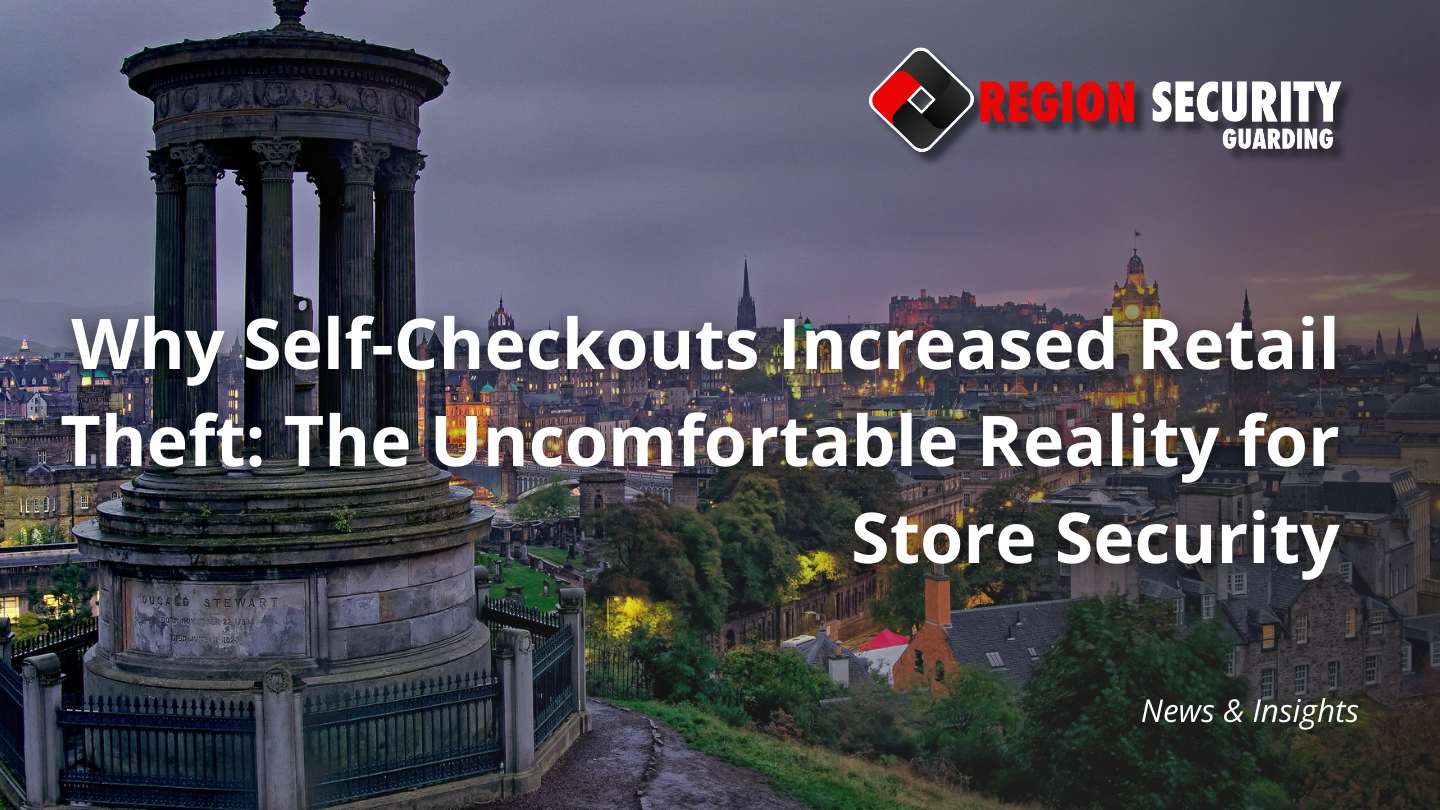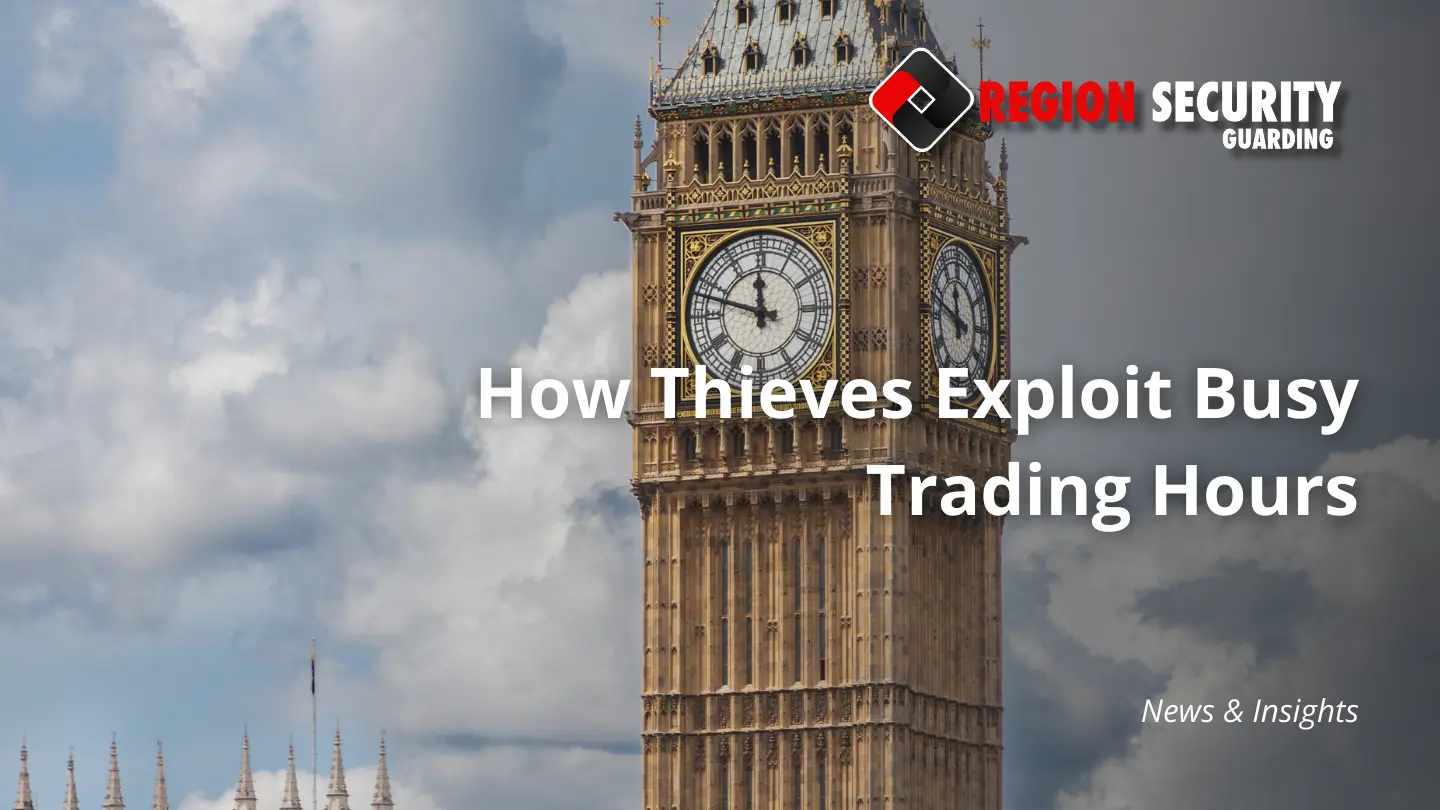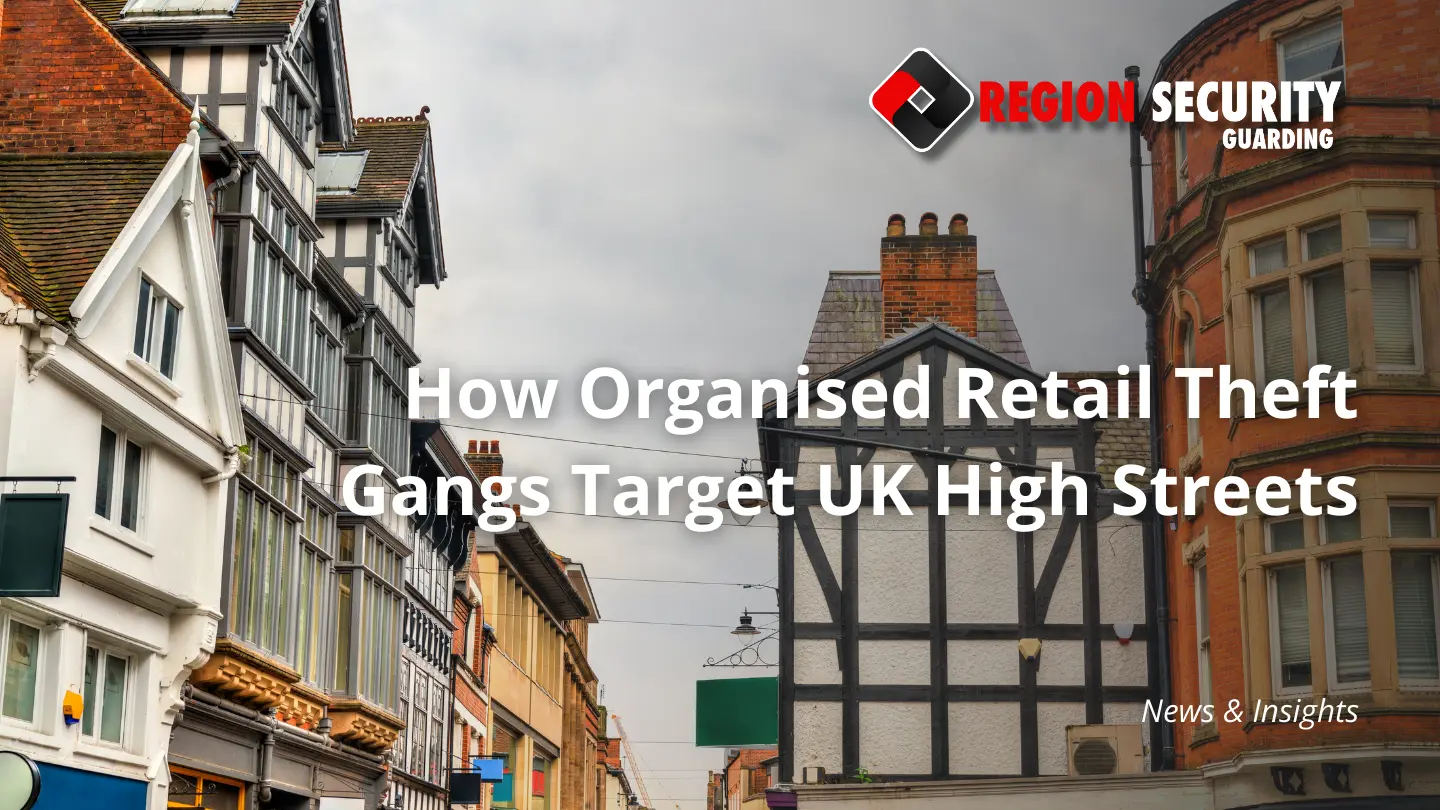As the UK increases its focus on renewable energy, solar farms are emerging as vital infrastructure across the country.
Solar energy projects are growing quickly across Britain. In regions such as the South East, favourable weather, open rural land, and supportive government policies have created ideal conditions for this growth
However, with this growth comes increased vulnerability. As they grow in value and importance, investing in proper security solutions to solar farms has become essential to prevent theft, damage, and costly disruptions.
Table of Contents
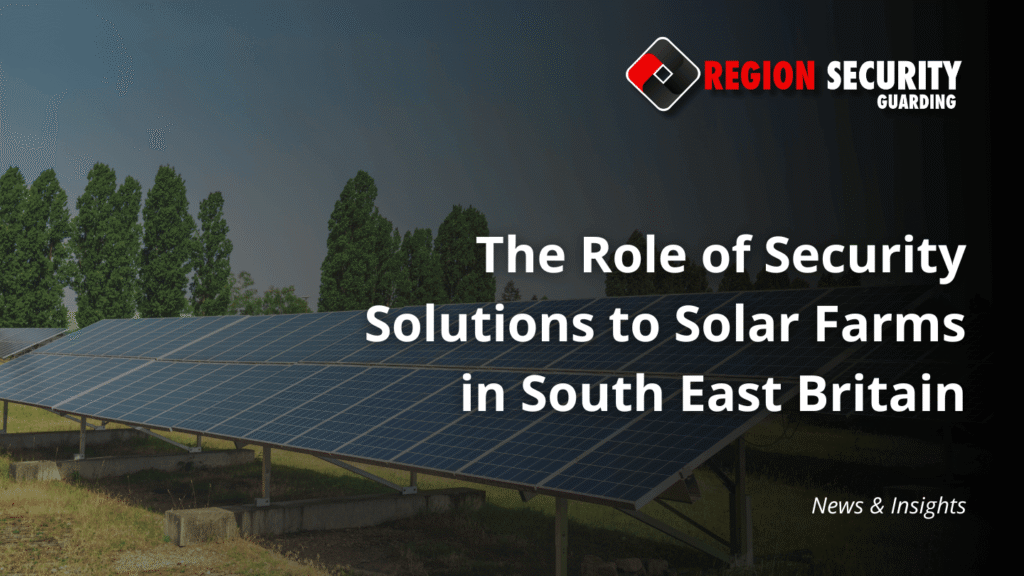
Solar Energy Growth in Southeast Britain
The solar energy sector has seen a boom in recent years, and the South East region of England leads the UK in solar panel installations. There was a total of 215,982 panels as of March 2025, according to Sunsave. This makes the region a key area for renewable energy development.
However, as the number and scale of installations grow, so too do the risks. Operators and developers across these regions are now turning their attention toward expert solar farm security solutions to protect their investments.
Why Is Solar Farm Security in Southeast Britain Becoming a Priority?
There are several reasons why security for solar farms in this region is now a key concern:
- Copper theft: Criminals target underground cabling due to the high resale value of coppe . This makes security for protecting solar panel thefts vital.
- Vandalism: Acts of damage to panels, fences, or inverters often result in costly repairs and power downtime.
- Environmental activism: While most actions are peaceful, some protest activities have resulted in sabotage and damage.
- Remote locations: Many farms are situated in isolated areas, making them more susceptible to unauthorised access.
These risks pose more than just a financial threat. They can also disrupt the energy supply and damage confidence in renewable energy systems. That’s why effective construction security solutions for solar farms are now seen as a necessary layer of protection, not a luxury.
Recent Incidents and Rising Threats
In the past few years, solar farms in Southeast Britain have faced growing security challenges:
Police in Hampshire, reported a sharp rise in copper cable theft in 2024. Offenders often use vehicles to pull cables over long distances before cutting them for resale. The damage caused disrupts essential services like power and transport.
These rising threats highlight the urgent need for tailored solar farm protection to secure valuable solar energy infrastructure across South East Britain.
Common Threats Solar Farms Face
Understanding the risks is key to designing effective solar farm security solutions. Some of the most common threats include:
- Theft: Panels, inverters, copper cabling, and batteries are valuable and easily sold on the black market.
- Vandalism: Damaged equipment can halt energy production and cost thousands to replace.
- Unauthorised access: Trespassing by thrill-seekers, protestors, or would-be thieves can result in unintentional or deliberate damage.
- Cybersecurity: With smart systems and SCADA (Supervisory Control and Data Acquisition) integration, digital breaches can now threaten real-world operations.
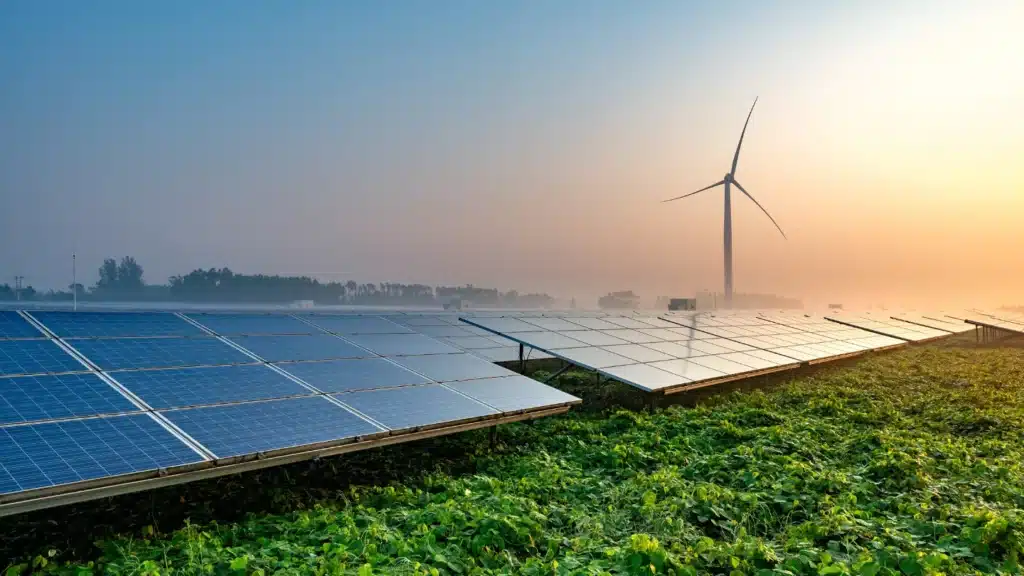
Implementing Security Solutions to Solar Farms
To tackle increasing risks, solar farms in Southeast Britain can choose from several security options, including professional security staff, physical defences, and digital monitoring tools:
Physical Security Measures
- Perimeter fencing: Anti-climb designs and reinforced materials to deter entry.
- Motion-sensitive lighting: Illuminates unauthorised activity at night.
- Secured access points: Strong locks on gates and power units.
- Ground design: Gravel or sand that highlights vehicle or foot traffic.
Surveillance and Monitoring
- CCTV: High-resolution cameras with infrared night vision.
- Motion detectors: Trigger alerts for movement after-hours.
- Drones: Aerial monitoring for large installations.
- Remote monitoring: Real-time data access from security firms or control centres.
Digital and Cybersecurity
- Firewalls: Protect internal monitoring networks.
- SCADA system hardening: Prevents hacking or remote manipulation.
- Data encryption: Secures communications between remote systems.
- Two-factor authentication: For operators and admin access.
Access Control Systems
- RFID cards: Track personnel entering restricted areas.
- Biometric systems: Limit access to only approved users.
- Remote access logs: Provide audit trails for investigation or compliance.
Another effective option is to use several solar farm security methods together to guard against potential threats.
Best Practices for Solar Farm Operators
To strengthen solar farm security in South East Britain and beyond, operators should follow a series of industry best practices:
- Conduct site-specific risk assessments annually or when major changes occur.
- Choose professional security providers with rural and infrastructure experience. For example, Region Security Guarding offers tailored solar farm security in Suffolk, Kent and throughout the South East.
- Partner with local law enforcement to build emergency response plans.
- Train employees and contractors on protocols, including what to do in a breach.
- Regularly update software used for surveillance or monitoring to prevent cyberattacks.
- Restrict access to sensitive systems, both physically and digitally.
In high-risk areas, having professional security guards on site at a solar farm can make a real difference. Their presence acts as a visible deterrent and allows for a quicker response if an incident occurs.
A Regional View: Tailored Solutions from Hampshire to Norfolk
While national security strategies provide a solid foundation, local conditions often call for a more customised approach. Factors like terrain, access routes, population density, and even historical crime rates can vary widely from one county to the next.
For instance, the best solar farm security in Southeast Britain may differ between a remote site in Hampshire may differ greatly from one in Brighton. That’s why it’s important to carry out local risk assessments and adopt technologies that suit each site’s specific needs.
By focusing on region-specific risks and working with professionals who understand the local landscape, operators can strengthen protection and maintain stable energy output. Investing in the right solar farm security in Southeast Britain isn’t just about safety. It’s about supporting the long-term success of renewable infrastructure across the region.
Conclusion: Security Is an Investment, Not an Expense
The growth of solar power is critical to the UK’s renewable energy targets. But this progress shouldn’t come at the expense of vulnerability. As technology advances, so do the methods used by criminals and saboteurs.
By prioritising security solutions to solar farms, developers in Southeast Britain can protect their infrastructure, their investment, and their contribution to a greener future.
Security is a continuous investment. With the right approach, you can protect your solar farm from theft, vandalism, and cyberattacks. This helps ensure uninterrupted service and long-term success.

